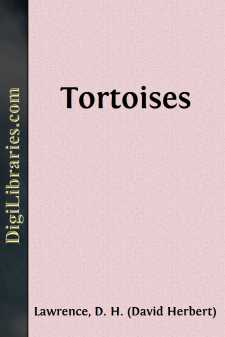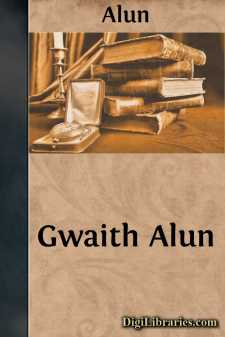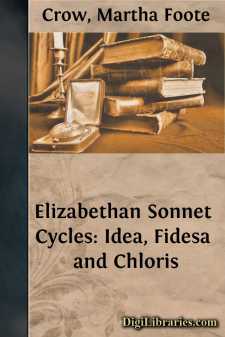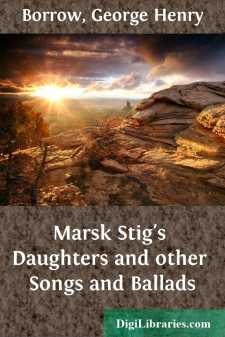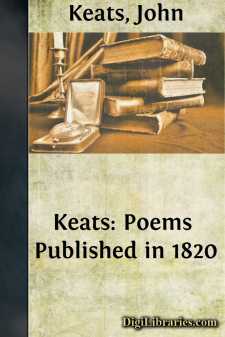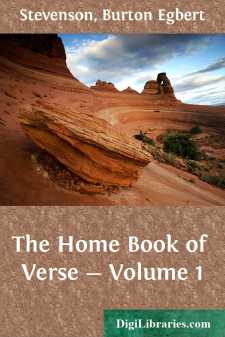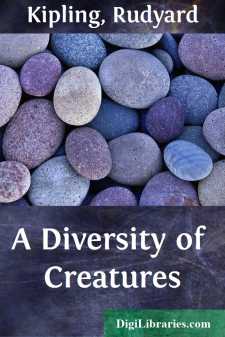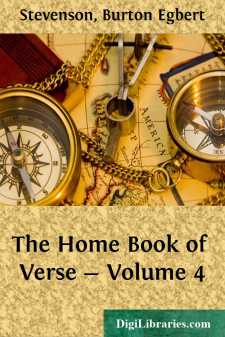Poetry
- American 96
- Ancient, Classical & Medieval 41
- Asian 15
- Australian & Oceanian 11
- Canadian 11
- Caribbean & Latin American 5
- Children's Poetry & Nursery rhymes 51
- Continental European 11
- English, Irish, Scottish, Welsh
- General 483
- Inspirational & Religious 7
- Middle Eastern 3
English, Irish, Scottish, Welsh Books
Sort by:
BABY TORTOISE You know what it is to be born alone,Baby tortoise!The first day to heave your feet little by littlefrom the shell,Not yet awake,And remain lapsed on earth,Not quite alive. A tiny, fragile, half-animate bean. To open your tiny beak-mouth, that looks as ifit would never open,Like some iron door;To lift the upper hawk-beak from the lower baseAnd reach your skinny little neckAnd take your...
more...
by:
Alun
Rhagymadrodd. Ganwyd John Blackwell (Alun) mewn bwthyn ger y Wyddgrug yn 1797. Un o Langwm oedd ei fam—gwraig ddarbodus a meddylgar; a dilynai ei mab hi i’r seiat a’r Ysgol Sul, gan hynodi ei hun fel dysgwr adnodau ac adroddwr emynau. Mwnwr call, dwys, distaw, oedd ei dad, a pheth gwaed Seisnig ynddo; cydymdeimlai yntau â’i fachgen. Yn unarddeg oed, heb addysg ysgol ond yn awyddus am...
more...
by:
William Watson
PRELUDE The mighty poets from their flowing storeDispense like casual alms the careless ore;Through throngs of men their lonely way they go,Let fall their costly thoughts, nor seem to know.—Not mine the rich and showering hand, that strewsThe facile largess of a stintless Muse.A fitful presence, seldom tarrying long,Capriciously she touches me to song—Then leaves me to lament her flight in vain,And...
more...
The true story of the life of Michael Drayton might be told to, vindicate the poetic traditions of the olden time. A child-poet wandering in fay-haunted Arden, or listening to the harper that frequented the fireside of Polesworth Hall where the boy was a petted page, later the honoured almoner of the bounty of many patrons, one who "not unworthily," as Tofte said, "beareth the name of the...
more...
MARSK STIG’S DAUGHTERS Two daughters fair the Marshal had,O grievous was their fate and sad. The eldest she took her sister’s handAnd away they went to Sweden’s land. Home from the Stevn King Byrgye rode;Up to him Marsk Stig’s daughters trode. “What women ye who beset my gate?What brings ye hither at eve so late?” “Daughters of Stig, the Marshal brave,So earnestly thee for help we...
more...
by:
John Keats
LIFE OF KEATS Of all the great poets of the early nineteenth century—Wordsworth, Coleridge, Scott, Byron, Shelley, Keats—John Keats was the last born and the first to die. The length of his life was not one-third that of Wordsworth, who was born twenty-five years before him and outlived him by twenty-nine. Yet before his tragic death at twenty-six Keats had produced a body of poetry of such...
more...
ANONYMOUS.1.Madrigal.Love not me for comely grace,For my pleasing eye or face;Nor for any outward part,No, nor for my constant heart:For those may fail or turn to ill,So thou and I shall sever:Keep therefore a true woman's eye,And love me still, but know not why;So hast thou the same reason stillTo doat upon me ever. 2.The Forsaken Merman.Come, dear children, let us away;Down and away below.Now my...
more...
"ONLY A BABY SMALL" Only a baby small,Dropped from the skies,Only a laughing face,Two sunny eyes;Only two cherry lips,One chubby nose;Only two little hands,Ten little toes. Only a golden head,Curly and soft;Only a tongue that wagsLoudly and oft;Only a little brain,Empty of thought;Only a little heart,Troubled with naught. Only a tender flowerSent us to rear;Only a life to loveWhile we are...
more...
by:
Rudyard Kipling
As Easy as A.B.C. (1912) The A.B.C., that semi-elected, semi-nominated body of a few score persons, controls the Planet. Transportation is Civilisation, our motto runs. Theoretically we do what we please, so long as we do not interfere with the trafficand all it implies.Practically, the A.B.C. confirms or annuls all international arrangements, and, to judge from its last report, finds our tolerant,...
more...
BALLADE OF THE PRIMITIVE JEST "What did the dark-haired Iberian laugh at before the tall blondeAryan drove him into the corners of Europe?"—Brander Matthews I am an ancient Jest!Palaeolithic manIn his arboreal nestThe sparks of fun would fan;My outline did he plan,And laughed like one possessed,'Twas thus my course began,I am a Merry Jest! I am an early Jest!Man delved, and built, and...
more...


